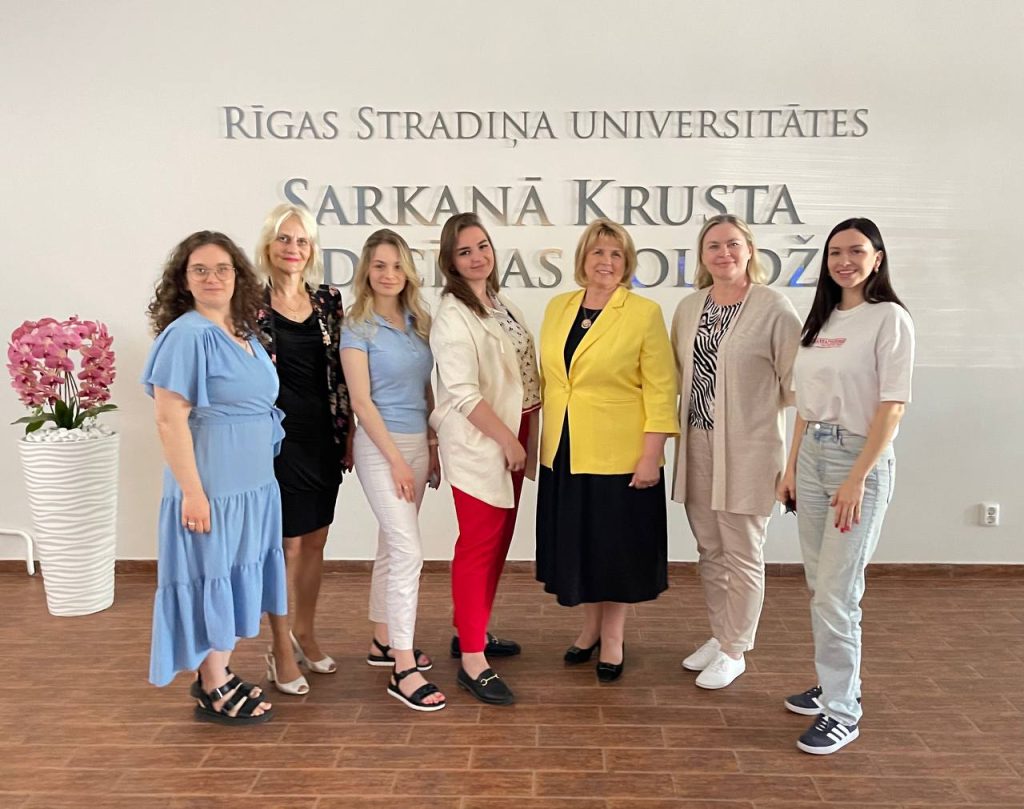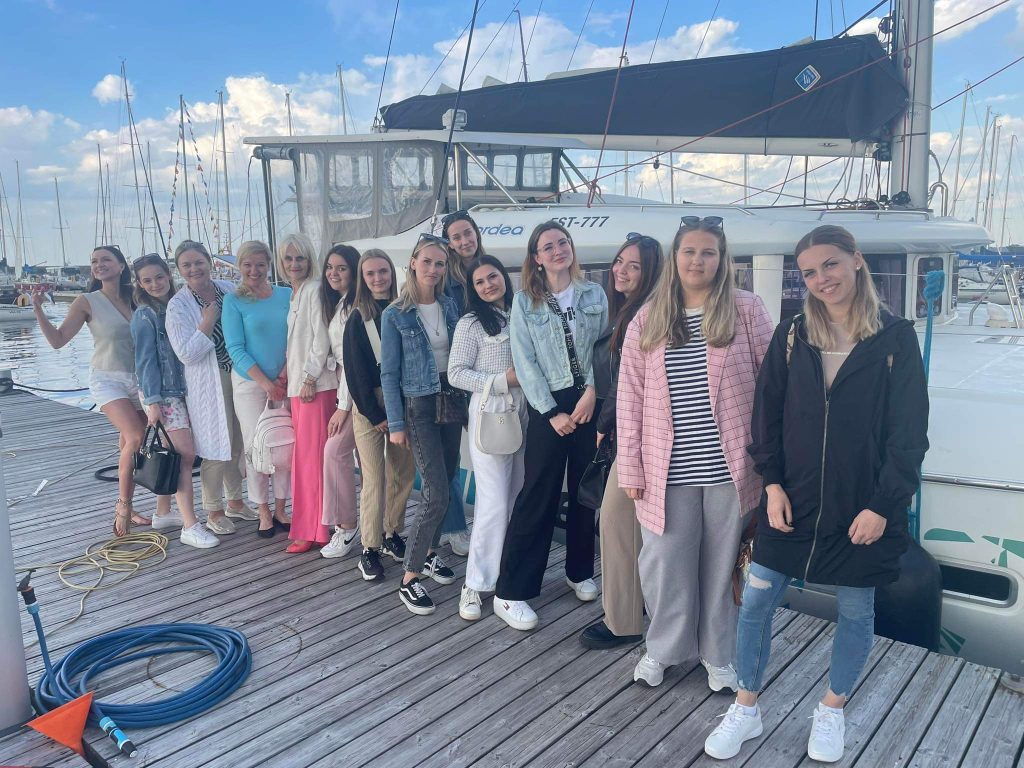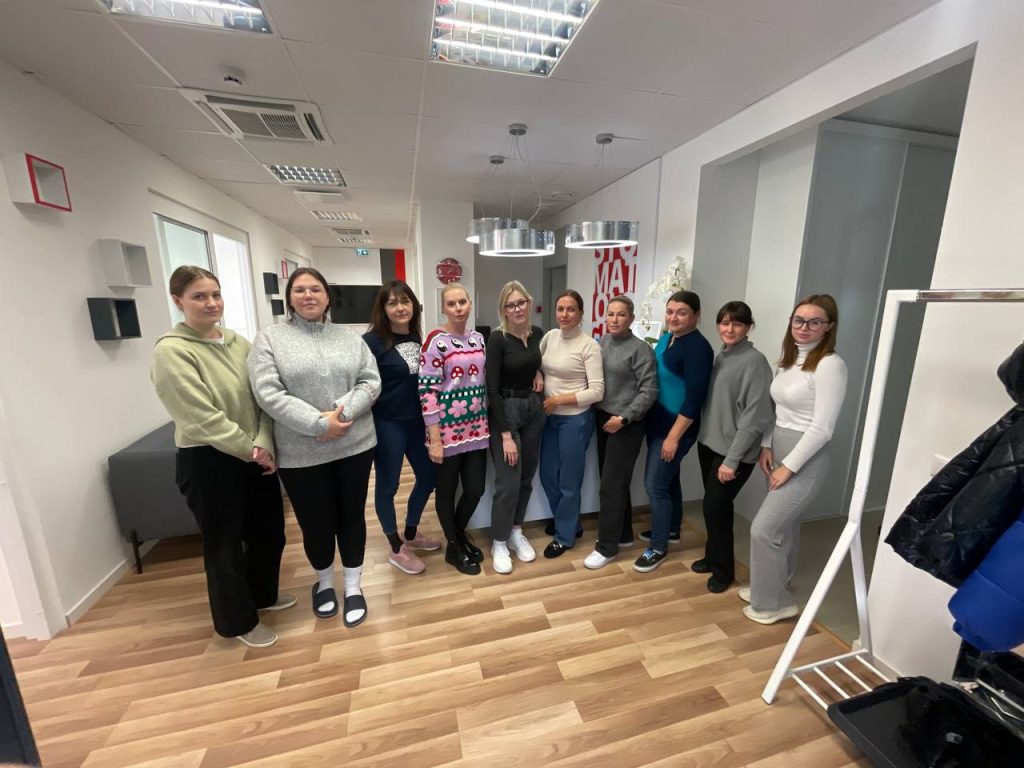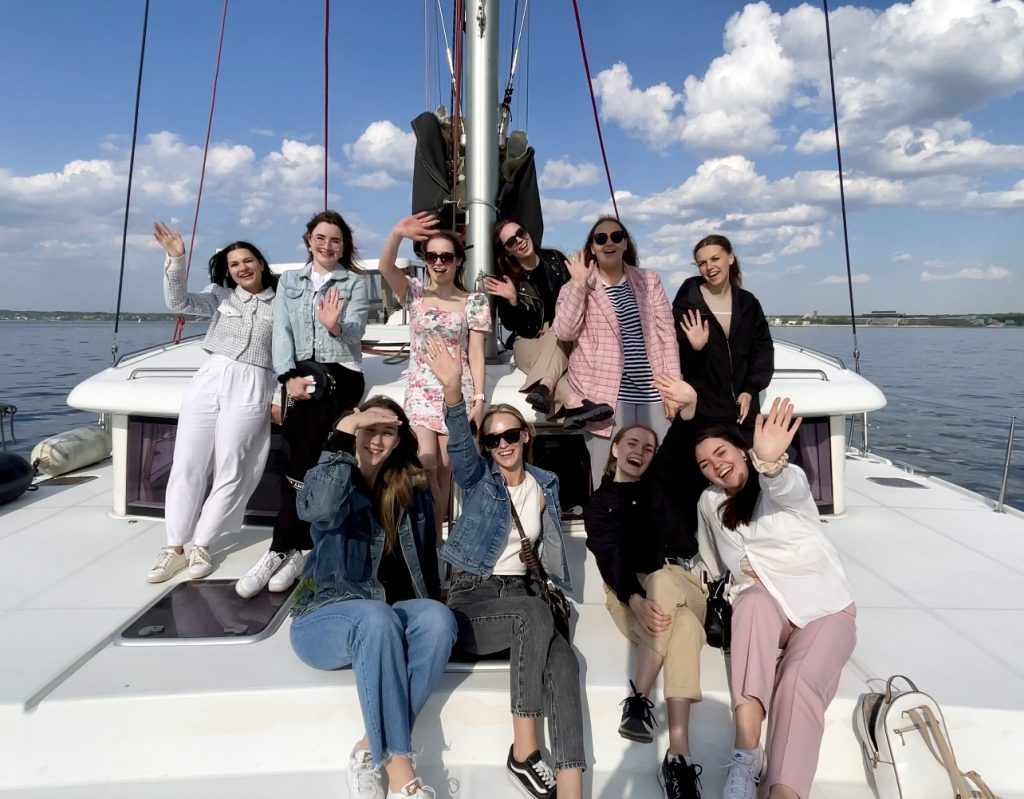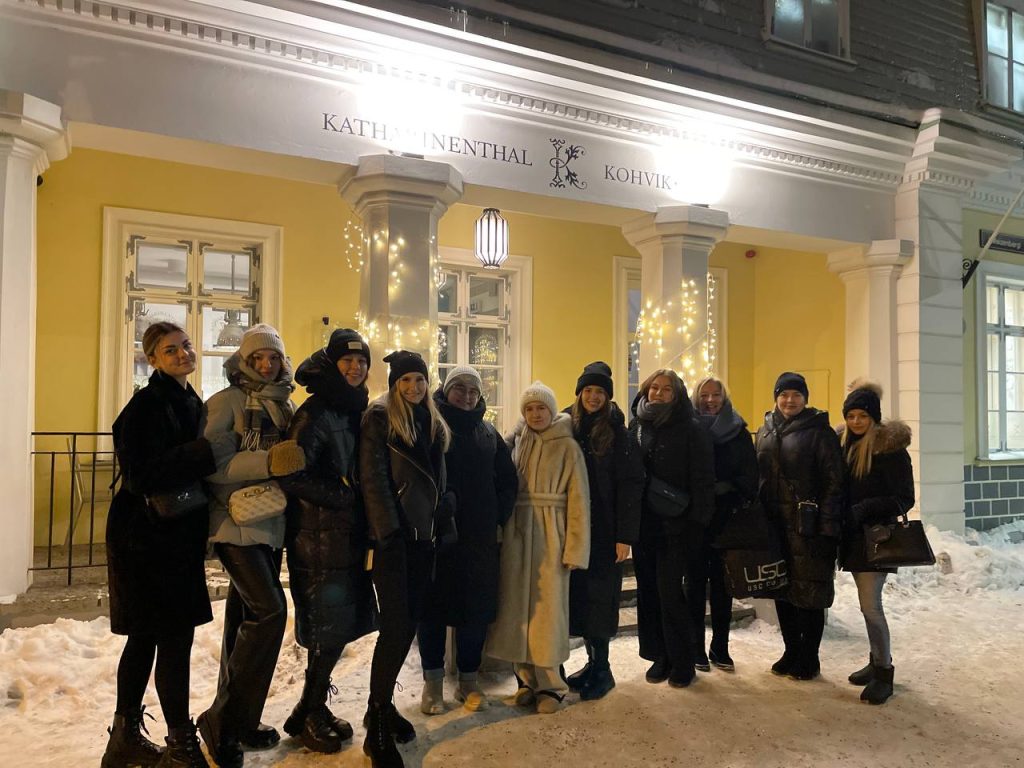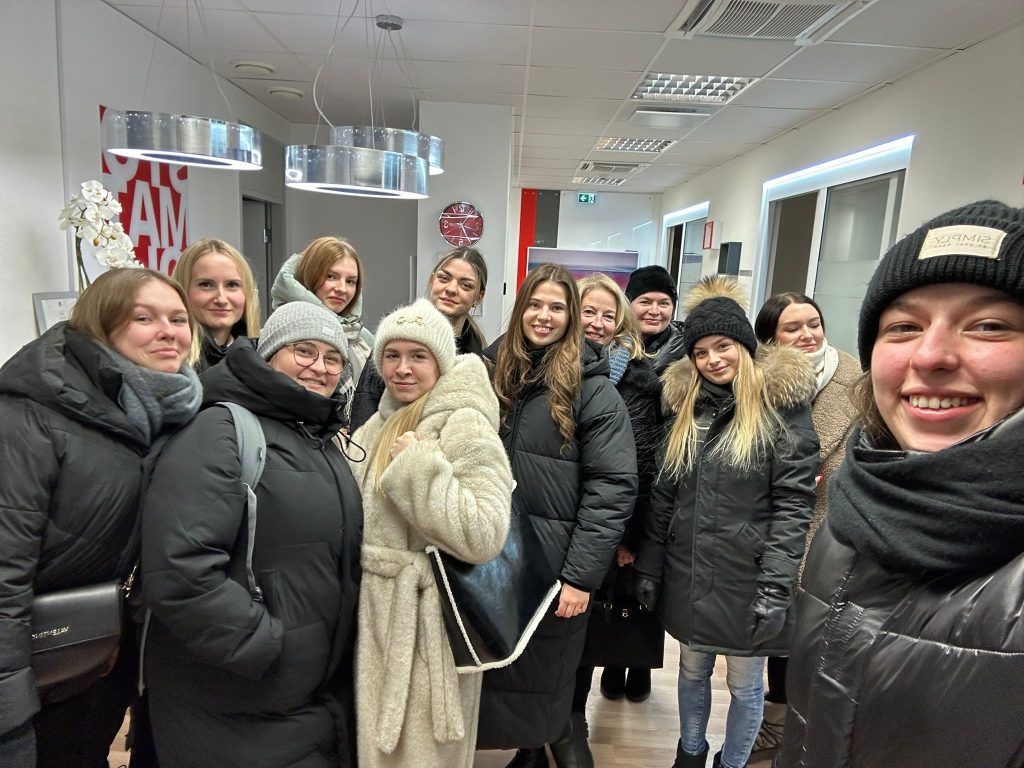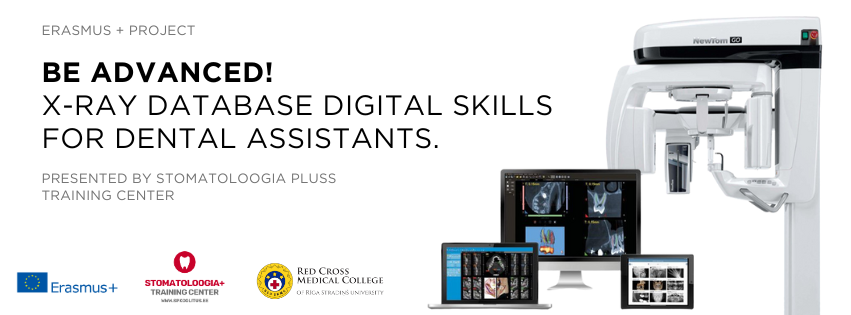
BE ADVANCED! X-RAY DATABASE DIGITAL SKILLS FOR DENTAL ASSISTANTS
We are excited to announce the successful completion of our Erasmus+ project, “Be Advanced! X-RAY DATABASE DIGITAL SKILLS FOR DENTAL ASSISTANTS.” This project has significantly enhanced the digital skills of dental assistants through innovative training programs and practical workshops.
The “Be Advanced” project aimed to equip dental assistants with skills to operate X-Ray machines and NNT software.
Key Achievements:
- Developed and implemented hands-on training on New Tom X-ray and NNT software.
- Created a comprehensive multilingual manual for X-Ray procedures.
- Conducted successful workshops in Riga and Tallinn, providing practical experience and knowledge.
- Collaborated with industry experts and educational institutions to ensure high-quality training.
Resources Available:
- Multilingual manual for dental assistants.
- Instructional videos, interviews.
- Ongoing training sessions available for completion
Impact:
- Improved digital competencies and employability of dental assistants.
- Enhanced the integration of digital technologies in dental practices.
- Strengthened partnerships between educational institutions in Estonia and Latvia.
- Increased awareness and use of AI in X-Ray analysis.
RESULTS OF THE PROJECT:
The primary output of the project was the comprehensive training of dental assistant students from Estonia and Latvia, equipping them with advanced skills in operating New Tom X-Ray machine and software NNT. Participants demonstrated improved proficiency in handling X-Ray images and managing data within national health databases E-Pildipank and DataMed. Another key output was the creation of a multilingual manual/guide for dental assistants, available in Estonian, Latvian, and English, which standardizes the training process and serves as a valuable resource for ongoing professional development. The project also facilitated the exchange of knowledge and best practices between SPTC and RCMC, fostering a collaborative environment and establishing long-term partnerships. Additionally, the practical workshops and theoretical sessions enabled participants to address and overcome challenges associated with X-Ray technology, thereby enhancing their problem-solving skills. The final online meeting successfully presented the project’s findings and the developed manual, ensuring that the knowledge gained is disseminated widely and effectively utilized in the dental field.
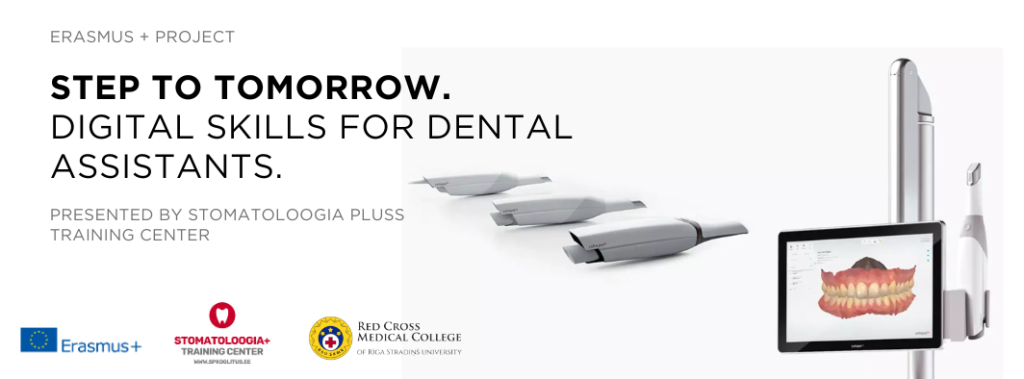
STEP TO TOMORROW
STEP INTO TOMORROW is an international educational project dedicated to teaching the technology of working with the 3Shape Intraoral scanner with the support of the European Union student and teacher exchange program ERASMUS.
Many dental clinics are still actively using the technology of making physical impressions for prosthetics and implants. The good old school approach is well known and reliable for making an instant impression of the patient’s teeth, and scanning it with a desktop 3D device for further processing. However, the science does not stand still, and more and more dental clinics are resorting to the use of intraoral scanners for making digital pictures on patients’ teeth.
The use of an Intraoral scanner eliminates the need for impression materials, guarantees high accuracy of the results and ensures high speed of information processing. As part of the STEP INTO TOMORROW project, MedGroup OU representatives provide practical training for dental assistant coerce students of the Red Cross Medical College (Latvia, Riga). The purpose of this training is to prepare the dental assistant for practical work with the 3Shape Intraoral scanner.
SP Koolituskeskus does its best to follow all kinds of innovations in the field of dental services and chooses the most advanced and innovative partners to introduce knowledge to the dental market . Join us to study new technologies first!
Contact us if you are interested in cooperation! SP Training Center
The project’s outcomes have greatly benefited both countries by providing certification to dental professionals, developing a comprehensive intraoral scanner protocol, and fostering cross-border collaboration and knowledge exchange. Furthermore, the project has raised awareness of intraoral scanner technology and built capacity for future training programs, contributing to the overall enhancement of dental care in Estonia and Latvia.
The key outcomes of the project are as follows:
1) Certification of 90 participants:
A total of 90 participants, including 45 students from Red Cross Medical College in Riga and 45 students and staff members from Estonia (SP Dental Clinic and Training Center), successfully completed the practical workshops. Upon completion, these participants were issued with certificates to acknowledge their newly acquired skills and knowledge in using intraoral scanners, which will enable them to better serve their patients and contribute to improved dental care in their respective practices.
2) Development of Intraoral Scanner Protocol:
As part of the project, a comprehensive protocol for using intraoral scanners in dental practices was developed. This protocol covers best practices, standard operating procedures, and guidelines on patient preparation, scanning techniques, data management, and device maintenance. The protocol will ensure consistent and effective use of intraoral scanners in dental practices and help to optimize patient outcomes.
3) Strengthened Cross-Border Collaboration and Knowledge Exchange:
The project facilitated collaboration between dental professionals and institutions from Estonia and Latvia, promoting mutual learning and knowledge exchange. This cross-border collaboration has helped to create a strong network of dental professionals, who can share experiences and expertise to continuously improve dental care in both countries.
4) Increased Awareness and Adoption of Intraoral Scanner Technology:
By participating in the project, dental professionals gained a deeper understanding of the benefits and applications of intraoral scanner technology in dental practices. This increased awareness is expected to encourage further adoption of the technology, ultimately leading to improvements in patient care, clinical efficiency, and overall dental treatment outcomes.
5) Capacity Building for Future Training Programs:
The successful implementation of the project has demonstrated the effectiveness of the training model and practical workshops. As a result, both the SP Dental Clinic and Training Center from Estonia and the Red Cross Medical College from Latvia have built their capacity to develop and deliver similar training programs in the future. This capacity building will enable these institutions to continue offering high-quality training opportunities for dental professionals, fostering ongoing improvement in dental care across Estonia and Latvia.
